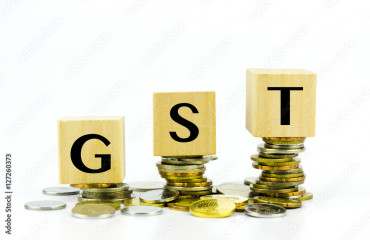
Mumbai: The government must look to fix dispute resolution in the upcoming budget with steps such as streamlining legal processes and introducing monitoring mechanisms to free up more than ₹12.2 trillion stuck in various tax squabbles, experts said.
Mumbai: The government must look to fix dispute resolution in the upcoming budget with steps such as streamlining legal processes and introducing monitoring mechanisms to free up more than ₹12.2 trillion stuck in various tax squabbles, experts said.
"Over the past seven years, India's tax framework has undergone significant reforms, yet a persistent challenge remains—the substantial amount of money entangled in litigation," said Saurabh Agarwal, a tax partner at EY, referring to the ₹12.2 trillion, as per data from previous budget documents. "This issue causes financial strain for both taxpayers, who must bear interest on pending liabilities, and the government, which is deprived of these funds for developmental purposes.
Also Read: Experts bat for proper litigation policy as taxman's delays get flak from courts
He said the government must streamline the legal processes in the July 23 budget to release resources trapped in prolonged disputes. The budget could introduce a comprehensive settlement scheme, providing tax and penalty concessions to encourage early resolution, particularly for smaller claims, Agarwal said.
"This approach aims to empower businesses, allow entrepreneurs to thrive, and ensure that valuable court resources are prioritised for more intricate cases," he said.
The amount locked up in customs-related litigation is about ₹22,000 crore, the data show.
Amnesty schemes
"An amnesty scheme can be introduced to resolve disputes regarding classification, valuation, exemption and trade agreement concessions since these are the key disputes regarding customs," said Ranjeet Mahtani, a partner at Dhruva Advisors. There could be exceptions to the scheme as in cases of smuggling, he added.
"Such a scheme, in line with the SVLDRS introduced for central indirect tax laws prior to the covid-19 pandemic, will prove beneficial for both the exchequer and taxpayer," Mahtani said. SVLDRS stands for Sabka Vishwas (Legacy Dispute Resolution) Scheme.
In the past, the government introduced the SVLDRS as well as the Vivad se Vishvas Scheme, which proved beneficial to dispute resolution.
At the state level, an estimated ₹3 trillion is stuck in sales tax/VAT disputes, according to Mahtani. Despite several amnesty schemes, the states are struggling to conclude these disputes, he said, many of which may not involve substantial questions of law.
"These are legacy disputes and have detained the administration as also bothered taxpayers for far too long and deserve a fresh look and unique approach, perhaps. The tax officials in most states are swamped by these cases and appeals and are unable to focus on other matters like GST," he said.
Under the goods and services tax regime too, there are disputes aplenty. Authorities have sent out a spate of notices to assessees in the past 18 months. However, a tribunal for GST disputes is still awaited.
"The absence of a tribunal is being acutely felt. Unfortunately, the GST Appellate Tribunal (GSTAT) will start with a backlog of appeals that will flood it once it is completely set up," said Mahtani. "The government must expedite the process and display the energy shown in 2023 to establish and have the GSTAT up and running."
Also Read: GST Council to decide on waiving disputed tax liabilities under new provision
Further, similar to the income tax framework, a parallel provision under the GST Act could be established to defer the filing of further appeals to the appellate tribunal or jurisdictional high court when a question of law in an assessee's case aligns with a pending question before the relevant court, said EY's Agarwal.
"Such an amendment would not only expedite legal resolution but also cultivate a more dynamic and vibrant economic landscape for our nation and unlock resources trapped in litigation," he said.
Abhishek A Rastogi, founder of Rastogi Chambers, said expediting just 20% of the issues could reduce 80% pendency.
"There must be a twin approach to provide transparent tax certainty and reduce pending litigation," he said. "In several cases which reach writ courts, the field officers have not followed instructions, guidelines and clarifications issuedby the board (Central Board of Indirect Taxes and Customs), thereby leading to frivolous litigation. Further, strict monitoring of disposal rate of cases at various levels must be done and bottlenecks must be addressed."
